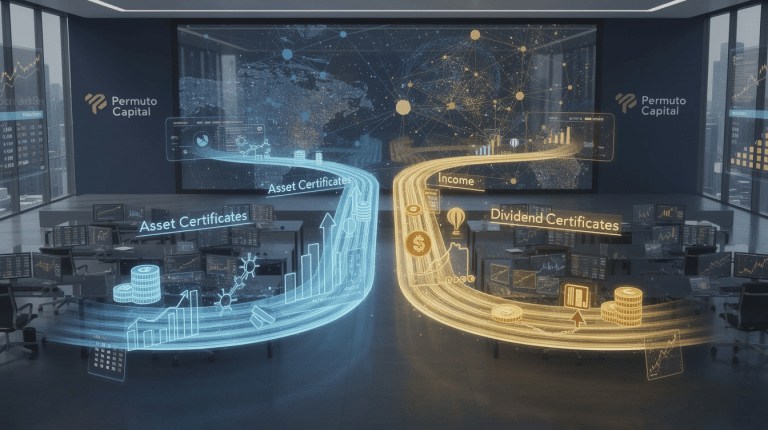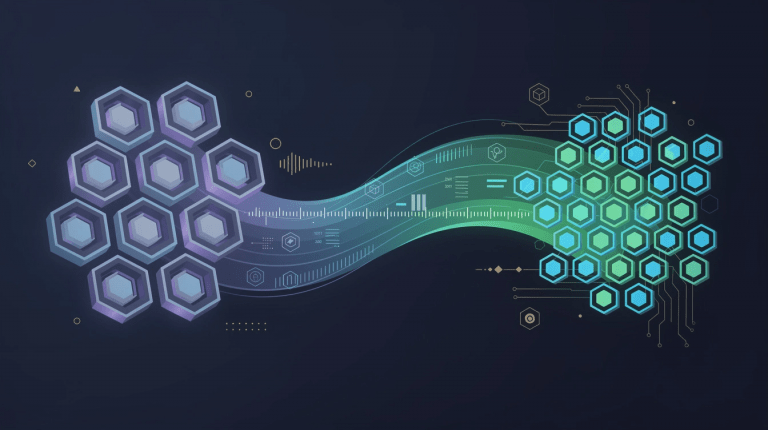At the recent mainnet 3rd anniversary event, Gene Hoffman gave the keynote, capping off a series of speeches from prominent members of the Chia community. This speech talks about the history and purpose of Chia, the progress so far, and a peek into how he views the future of the chain.
To me, this speech was reminiscent of Erik Voorhees‘ keynote speech “Why Are We Here” at Permissionless II in 2023 where he reflected on the cypherpunk principles that Bitcoin was built on and why permissionless money matters now more than ever. If you want to watch this speech, Erik and I put up the video and a copy of the transcript on my site at whyarewehere.xyz.
In a similar fashion, I am including a timestamped link to Gene’s keynote speech and a transcript to ensure the contents are accessible to be translated to all the believers of building decentralized and permissionless sovereignty around the world.
Keynote Transcript
Editor’s note: Links and section titles were added by the author.
The growth of the network
Thank you very much, I’ll just want to start with how impressed I am with everyone who’s involved in this endeavor. This is more than just a company; it is a project that spans the globe that really has a chance to change in many ways how the world works.
So on our third anniversary, I want to back way up. Recently, Slowest Timelord posted a really interesting post to his blog that was basically about Bram kind of initially approaching Bitcoin and I think one of the most important things about what this endeavor is about is about really looking to solve real problems. You know, a lot of folks are skeptics of blockchains or think this technology is just scams and “Sam Bankman Fried”s, and frankly, they have a lot to go on when they make that criticism.
Hundreds of thousands of farmers around the world, people farming through space over SpaceX and Starlink. Once in a while, the farmers turn on in McMurdo Station, Antarctica. There really isn’t a network that has the kind of reach and depth that we have.
But when Bram approached Bitcoin, it was with an open mind. It was with:
Yes, there are a lot of things that don’t work right that suck. Let’s think about what we could do to solve those, and let’s go do the hard work, the unglamorous work, the real research and development, the deep math, like literally invent new math here in a couple of different places.
And we did that. And not only did we do that, we ended up shipping a… the most decentralized public blockchain ever. We peaked around 4 or 500,000 full nodes, with about 90,000 these days, but I actually expect that number to go the other direction over time as well.
It is a marvel. We had one single slowdown ever, and the funniest part is that it was a known Bitcoin bug that we thought we had specifically looked at. Since then, for the last, oh, I don’t know, two years, we’ve had 100% uptime, almost 30 months of 100% uptime. And hundreds of thousands of farmers around the world, people farming through space over SpaceX and Starlink. Once in a while, the farmers turn on in McMurdo Station, Antarctica. There really isn’t a network that has the kind of reach and depth that we have.
Peer-to-Peer Trustlessness
And then there is the true peer-to-peer ethos. This is about taking all of the middlemen out. It is about trusting less institutions, less people. My team here has challenged me to write a blog post that is, “Why does trustlessness matter?” And I struggle because it to me, is so obvious why trusting less people is extremely valuable but it’s important because a lot of people take a lot of things for granted in this world.
Being able to give that level of trust to a globe that doesn’t care what skin color you are, what locale you’re from, what your religion is, what your politics are — when finance is truly divorced from all of those things, the world is going to be a better place and a more efficient place.
When you buy a cup of coffee with a debit card, you are trusting upwards of five different institutions simply to do that transaction. We forget what we accept is complexity and assume that that’s just how the world has to work. It doesn’t.
There really shouldn’t be a distinction between eBay and the New York Stock Exchange. There shouldn’t be a distinction between buying a car and buying Tesla stock.
It should be all the same commerce. It should be all the same trust.
And when we do that in the west, we’re very lucky. The dollar, yen, pound sterling, Eurozone, those things kind of work:
- We know how to buy and sell things.
- We know what to do if someone tries to cheat us.
- We know generally how to deal with scammers.
But outside of that, that’s a luxury other places don’t have.
Now, a lot of people have talked about smart contracting as solving everybody’s problems, and that’s not the case. Smart contracts, though, can solve the last mile of the rule of law.
You really can make it that once you have an agreement between two parties that neither party can cheat. You all of a sudden have the ability to do things with escrow agents where the escrow agent can’t steal the money, they can only choose which party wins or to what extent which party wins.
Being able to give that level of trust to a globe that doesn’t care what skin color you are, what locale you’re from, what your religion is, what your politics are — when finance is truly divorced from all of those things, the world is going to be a better place and a more efficient place. Some of this is strictly the profit motive of when you take a bunch of trusted parties out, there are less middlemen’s hands to feed. All of a sudden, now you’re paying for inconclusion in the blockchain and doing a deal directly with the parties that you want to deal with.
CNI Goals for the Year
So coming down a little more technically — tactically, I guess I would say, CNI has three really big goals for this year.
1) Non-carbon use case in production
One is to get our first non-carbon use case in production. And I want to pause with that. That’ll be our second in-production, serious use case. There are not a lot of blockchains, maybe any, who truly have in-production third-party, using other people’s money in a trusted manner to solve real problems from the real world.
There are a lot of casinos and LARPs. There are certainly real things like art trading that’s a really wild and new concept that can be a single market, and we’re excited about continuing to make that a single market. But we think it’s critical to be able to articulate one additional serious use case beyond just the carbon markets, which we also think are going to be big.
2) Expand carbon trading on the Chia Blockchain
That leads me to the second point, which is that we want to expand carbon trading on the Chia blockchain. We are confident that this calendar year, before we’re over, you’ll be able to buy and retire carbon 24/7/365, in the one market that Chia Offer Files creates. Dexie, Splash, and all the other sources and maybe even carbon-specific views to those entire flows of Offer Files, we think that’s going to be a game changer for the carbon business and for the Chia blockchain.
3) Better on-ramps to one market
We also painfully are aware that our on-ramps and off-ramps must get better. And we’re really excited about the work that Yak and many other people on this event are doing to validate our new bridge from an Ethereum-style blockchain.
We’re excited about bringing things like wrapped USDC, and ultimately things like wrapped USDT as well so that the pairs that are available in this one market can have any kind of stablecoin to settle in. And it’s important as we talk about that one market is that we want to really move to a world where you don’t just price your asset in one Offer, you, in fact, probably have like five offers for any asset. The USDC offer, the USDT offer, the BYC offer, and the XCH offer as well. So, we want that to be the de facto so that you’re spreading liquidity, that you’re not worried about which pool the buyer comes from and that any buyer that happens to have whatever asset they want can easily compose the transaction they want with the willing seller.
Becoming IPO Ready
Finally, it’s more of an in-the-background thing, but it’s important. We are completing and moving that path to being IPO-ready. The things we can control look very good, and we continue to move forward. We’re excited about that. We are, you know, one eye on the market. Rumors are that the Reddit IPO is oversubscribed, and that is a good thing. I never thought we could be the first ones through, but if the both coin markets and the IPO market, and those two are very different but they are related, continue to be strong, we’re excited about our potentials there moving forward.
Adoption through Offers and Custody
Now, again, the things that have me most excited right now are Offers and custody. It’s hard to imagine that we’ve had a bunch of blockchain projects that have come before, and they’ve attempted to get enterprise and government use cases and real people doing real things with other people’s money yet didn’t really address seriously custody.
Twenty-four words is not something you look at a normal person at a normal business who’s just a controller but needs to move millions of dollars a day, and they’re going to be comfortable with — that’s just scary.
Most of blockchains have kind of focused on the individual consumer view of how you would use this stuff. The moment you get any sort of institution together, and we see this with some of the problems with DAOs, there are just these basic concepts like:
- No one person should be able to spend more than x amount of the company’s money.
- No one person should be able to generate carbon offsets from the registrar.
So being able to make it so that companies and DAOs and others can just really easily set up rules that say: “Hey, as long as two of these three people agree, then we can go forward and it creates a record and we can change that when somebody leaves the company easily”.
That stuff has to be right, and we’re really excited about what we’re going to deliver here in the first half of this calendar year around Cloud/Enterprise Wallet, around iOS Signer and Vaults. We’re going to make this as easy and as secure as the kind of high-security choices in Gmail.
It’s got to be that easy and in fact, we expect things like iOS, Android, Ledger, and YubiKeys to be the kind of elements that you can use to build a human-manageable way to recover, an organization-manageable way to replace an employee when they churn, an easier way to not really trust an institution but have an institution there if you die and if your spouse needs to recover your assets, there’s a path that is both secure and reliable.
We think these things are massive table stakes to unlock blockchains to become not just the kind of 20% of America that uses it but the 90% of the rest that will use it too.
Building real things take time
I cannot underline enough that we are really the only blockchain project with governments and enterprises doing strategic real-money things in production today. North of 80% of all carbon assets that are voluntary around the world are documented in the CAD Trust using the Data Layer on the Chia blockchain, and that will lead to a robust on-chain carbon offset trading process.
These are huge changes in those markets, and those sorts of huge changes when you have other people’s money at risk, they don’t happen on degen crypto speed, they happen on, “if they happen in three or four quarters, it’s fast”.
So I ask everyone to persevere that building real things takes time, but we also have the evidence that we can deliver those real things and each one of those real things that we deliver in production makes that conversation with the next, that much easier. So we’re excited about that speeding up as we go out and bring in new customers, new partners that are doing important things that are strategic to them.
Community upholding principles
I’m proud of our community. Of late, there were attempts to censor in a way that I think is exactly the opposite of the ethos of what we’re trying to do. I joke that we are Cypherpunks in Sportcoats, but we remain cypherpunks. The idea here is that this is a permissionless system. It has a community that will reject what I would consider to be bad mind viruses and I want it to work the way we do, to be very real, to be very direct, because we’re talking about money, and we’re talking about the global effect of how money works, and we’re talking about making governments behave around money.
When that’s the case, we ourselves need to look to the things that 18th-century thinkers were really thinking about, about how permissionlessness and speech and technological advancement shouldn’t be a question that a majority of voters can say no to even. But even still, at least asking for it to be a majority is better than the tyranny of saying “you can’t think that”, “you can’t do that”, “you can’t commerce like that”.
And that gets me to why.
Why are we here?
The thing that’s critically important, the thing that’s most frustrating in many ways, is that if and when, and it’s only when (the question is timing on the “if”), we get the power of Offer Files, the power of self-custody, these tools into the rest of the four billion people around the world, we’re talking about a level of personal freedom that we haven’t had before.
No longer, if you’re a trucker in Canada and disagree with the policies, do you lose your checking account. If you’re a sex worker in the United States, you lose your bank. If you are someone who sells guns, you can’t access the credit card network. These financial infrastructures aren’t supposed to be weaponized by politics. There’s always somebody who has politics you don’t like that will get weaponized against until your politics get weaponized against.
Blockchains, cryptocurrency, has the power to change that so that you don’t have to try to get your money out of Beirut or out of Venezuela or out of Argentina. These are painful things for people to go through, and I think that the protection of wealth, the ability for you to totally and fully have agency over your wealth and your income is one of the pillars of civil rights and when you have that, you can speak, you can create technology, you can live your life, and you can move forward.
And I think that we have the opportunity to take this entire project of creating real financial infrastructure in a truly peer-to-peer and decentralized way and make it as common as credit cards are today, maybe more common than that, and change the entire way of the world works. We need to bring back the ability to use cash in an anonymous way, ultimately, and have it work exactly like cash does today where yes, when you pull out of the ATM, people know you made an ATM transaction, but what you do between that and the time you deposit again, should be yours and yours alone.
We need these capabilities. We need the internet-native payment capability as well. I think it’s going to change how the internet itself works when you can charge a little bit. All of a sudden, spam and abuse becomes a totally different scenario and we have not had that. We’ve had an internet that had to make bad sacrifices because credit cards were hard and don’t really fit the internet. We have the social media that created — we are the, unfortunately, the product and not the customer at Facebook, at Twitter, at other places.
The global adoption of cryptocurrencies and blockchains give us the ability to change that, to go back to actually paying for content because it’s cash and it can work, to creating better communities using these tools, things like Data Layer, things like being able to do micro payments on a layer two, ultimately, these are game changers for both speech and commerce.
Supporting each other moving forward
I’m very proud of the community that has built up around these ideas, the technical acumen, the brilliance of the people inside CNI and outside. And you know, the inside versus outside CNI thing I think is often way too different. Ultimately, we want the CNI entity to be able to make it so that everybody can go out and develop, and create, and doesn’t have to begware.
Right now, the markets have been bad, they’re getting better, I think there are things we can continue to do to support more, but I also love seeing what’s happening between developers supporting each other, community supporting them. We are still supporting people in the background. I will say I’ve not been very happy with how our grant program ran in the past, but I think we’re starting to come together on things that we can do in the future and no matter what, for those people who are the entrepreneurs, the technical achievers who are going out and making things happen, we’re going to be there to support you.
So, it’s been a wild three years. We had one of the worst cryptocurrency downturns and even macroeconomic environments I’ve ever seen. But it’s getting much better, and we’ve built a tremendous amount of technology and tools and community and trust during that entire period so that we can now move forward faster and go to places that we’ve always known this can go but go to them now, go in a way that frees more people, that gives people more opportunities, more options, makes things more efficient, and ultimately creates more liberty.
So thank you everybody. I am humbled to be y’all’s servant, frankly. So thank you very much and happy anniversary everybody.










[…] bridge was one of my top 10 predictions for 2024 as a means to more easily on-ramp into XCH. Gene also mentioned improving on and off-ramps as one of CNI’s top 3 goals for 2024 with specific mention of the […]
[…] posted the video, transcript, and some of his thoughts on @hoffmang keynote at the 3rd anniversary of #Chia mainnet! […]